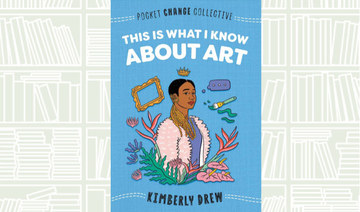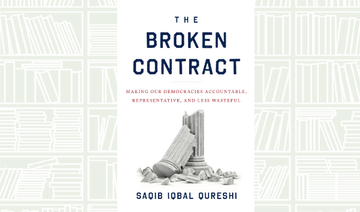WASHINGTON: President Joe Biden’s son Hunter details his lifelong struggle with alcoholism and drug abuse in a new memoir, writing that “in the last five years alone, my two-decades-long marriage has dissolved, guns have been put in my face, and at one point I dropped clean off the grid, living in $59-a-night Super 8 motels off I-95 while scaring my family even more than myself.”
His “deep descent” into substance addiction followed the 2015 death of his older brother, Beau, who succumbed to brain cancer at age 46, Hunter Biden writes in “Beautiful Things.” The book is set for release on Tuesday.
“After Beau died, I never felt more alone. I lost hope,” he wrote.
He credits his second wife, Melissa Cohen Biden, with helping him sober up, along with the love from his father and late brother.
Before meeting his future wife in California, Hunter Biden cycled through addiction, rehab and sobriety all while managing to have a family and career as a lawyer and lobbyist. His family tried to intervene sometime in 2019 after his mother, Jill Biden, called and invited him to a family dinner in Delaware.
But Hunter Biden sensed that more than a hot meal was on table after he saw his three daughters and two counselors from a Pennsylvania rehab center where he’d been a patient when he arrived.
He swore at his father and bolted from the house, but was chased down the driveway by Joe Biden, who “grabbed me, swung me around, and hugged me. He held me tight in the dark and cried for the longest time. Everybody was outside now.”
To end the scene, Hunter Biden agreed to check into a facility in Maryland. He was driven there by Beau’s widow, Hallie, with whom he’d had a relationship. After she dropped him off, Hunter Biden writes, he called an Uber, told the staff he’d return in the morning and then checked into a hotel near Baltimore’s airport.
“For the next two days, while everybody who’d been at my parents’ house thought I was safe and sound at the center, I sat in my room and smoked the crack I’d tucked away in my traveling bag,” he wrote. “I then boarded a plane for California and ran and ran and ran. Until I met Melissa.”
The first drink Hunter Biden remembers having was a flute of champagne.
He was 8 and at an election-night party in Delaware celebrating his father’s reelection to the Senate in 1978. He says he didn’t know what he was doing because “to me, champagne was just a fizzy drink.”
But he writes that he knew better when he was 14 and overnighting at his best friend’s house in the summer between eighth and ninth grades. They split a six-pack of beer while the boy’s parents were out. The boys pretended to be asleep when the parents returned home because they were drunk after three beers apiece.
“Getting blasted and sick as a dog didn’t scare me or turn me off one bit,” he wrote. “Instead, I thought it was kind of cool. While I felt a nagging guilt from disappointing my father, who didn’t drink and who encouraged us to stay away from alcohol as well, I wanted to do it again.”
Drinking, he wrote, “seemed to solve every unanswered question about why I felt the way I felt. It took away my inhibitions, my insecurities, and often my judgment. It made me feel complete, filling a hole I didn’t even realize was there — a feeling of loss and my sense of not being understood or fitting in.”
At 18, Hunter Biden was busted for cocaine possession but did pretrial intervention with six months’ probation and the arrest was removed from his record. He says he disclosed the episode during a 2006 Senate committee hearing on his nomination to serve on the Amtrak board of directors.
As an adult, he once let a crack cocaine addict he first met when he was a senior at Georgetown University live with him in his Washington apartment for about five months. Hunter Biden was kicked out of the US Navy Reserve after he failed a drug test.
Hunter Biden, now 51, also writes about thinking he had developed a superpower — “the ability to find crack in any town, at any time, no matter how unfamiliar the terrain,” and about once having a gun thrust in his face when he embarked on such a hunt during five months of self-exile in Los Angeles.
It was in Los Angeles where he met Melissa Cohen, and he describes their first meeting as akin to love at first sight. He says she didn’t flinch when he told her about his addiction, his alcoholism and other problems.
“She pushed away everyone in my life connected to drugs,” taking away his phone, computer, car keys and wallet, he wrote. She deleted every contact in his phone who wasn’t family, and tossed his crack cocaine.
The South African filmmaker slowly eased him off of drinking and arranged for a doctor to come to their Hollywood Hills apartment to help with his withdrawal. He slept for three days.
He woke up on the fourth day and asked her to marry him. She asked to wait for the right time, but when they woke up the next morning — seven days after they’d met — — she told him, “Let’s do it.”
They wed in May 2019. Their son, Beau, came along in 2020.
Last week, Hunter and his family were at the White House and traveled with President Joe Biden aboard the Marine One helicopter.
Hunter Biden details lifelong addiction struggle in memoir
https://arab.news/2wyut
Hunter Biden details lifelong addiction struggle in memoir

- He credits his second wife, Melissa Cohen Biden, with helping him sober up, along with the love from his father and late brother
What We Are Reading Today: ‘The Evolution of Power’ by Geerat Vermeij

Power has many dimensions, from individual attributes such as strength and speed to the collective advantages of groups.
“The Evolution of Power” takes readers on a breathtaking journey across history and the natural world, revealing how the concept of power unifies a vast range of phenomena in the evolution of life—and how natural selection has placed humanity and the planet itself on a trajectory of ever-increasing power.
What We Are Reading Today: ‘Semi-Detached’

Author: JOHN PLOTZ
When you are half lost in a work of art, what happens to the half left behind? “Semi-Detached” delves into this state of being: what it means to be within and without our social and physical milieu, at once interacting and drifting away, and how it affects our ideas about aesthetics.
The allure of many modern aesthetic experiences, this book argues, is that artworks trigger and provide ways to make sense of this oscillating, in-between place.
What We Are Reading Today: ‘The Ant Collective’

Author: ARMIN SHCIEB
Ants share a vibrant and complex communal life and remarkable abilities to communicate with each other.
“The Ant Collective” presents the world of ants as you have never seen it before, using hyperrealistic, computer-generated imagery that shows 3D-like views of activities inside and outside a thriving nest of red wood ants.
With chapters on topics ranging from the establishment and construction of the nest to the birth of an ant trail and the relocation of a colony, this one-of-a-kind book brilliantly integrates informative descriptions with the illustrations.
What We Are Reading Today: The Shield of Achilles

Author: W. H. Auden Edited by Alan Jacobs
“The Shield of Achilles,” which won the National Book Award in 1956, may well be W. H. Auden’s most important, intricately designed, and unified book of poetry. In addition to its famous title poem, which reimagines Achilles’s shield for the modern age, when war and heroism have changed beyond recognition, the book also includes two sequences—“Bucolics” and “Horae Canonicae”—that Auden believed to be among his most significant work.
Featuring an authoritative text and an introduction and notes by Alan Jacobs, this volume brings Auden’s collection back into print for the first time in decades and offers the only critical edition of the work.
As Jacobs writes in the introduction, Auden’s collection “is the boldest and most intellectually assured work of his career, an achievement that has not been sufficiently acknowledged.” Describing the book’s formal qualities and careful structure, Jacobs shows why The Shield of Achilles should be seen as one of Auden’s most central poetic statements—a richly imaginative, beautifully envisioned account of what it means to live, as human beings do, simultaneously in nature and in history.
Book Review: ‘I Used to Have a Plan: But Life Had Other Ideas’ by Alessandra Olanow

- The author’s storytelling talent and introspective reflections on her personal journey make this book an excellent option for people searching for inspiration and a deeper understanding of life and human experience
“I Used to Have a Plan: But Life Had Other Ideas” is a captivating book by New York-based author Alessandra Olanow. Her book was published in 2020 and talks about a self-discovery journey and resilience.
Through her beautifully crafted stories and storytelling, she takes readers on a journey of self-discovery and invites them to learn through the unexpected experiences that shape their lives.
Through the pages of this book, Olanow shares her personal experiences of how she managed to overcome life’s unpredictable circumstances. With her honesty and interesting narrative, she speaks about the lessons learned on her life journey. From her professional experiences to her personal relationships, Olanow’s story exudes authenticity and reminds the reader that life rarely follows a straight path, which makes life realistic and beautiful at the same time.
One of the strengths of Olanow’s book is her ability to describe the depth of emotions and how she talks about her personal struggles during some of the hardest moments in her life.
She expresses her opinions and reflections on life’s challenges by encouraging the readers to reflect as well on their own journeys, motivating them to overcome their obstacles too.
Moreover, regardless of the ups and downs she encountered, she explained how she maintained a sense of hope and resilience.
Additionally, the book is enriched with evocative descriptions of the places the author has lived and traveled to. Whether she was exploring the busy streets in one city or immersing herself in the serenity of nature, her ability to paint a colorful picture through her words takes readers to these places, allowing them to travel with her in thoughts.
Overall, this book is interesting and inspiring at the same time. It reminds readers of the beauty and resilience of accepting life’s unexpected turns and celebrating the beautiful moments too.
The author’s storytelling talent and introspective reflections on her personal journey make this book an excellent option for people searching for inspiration and a deeper understanding of life and human experience.

















